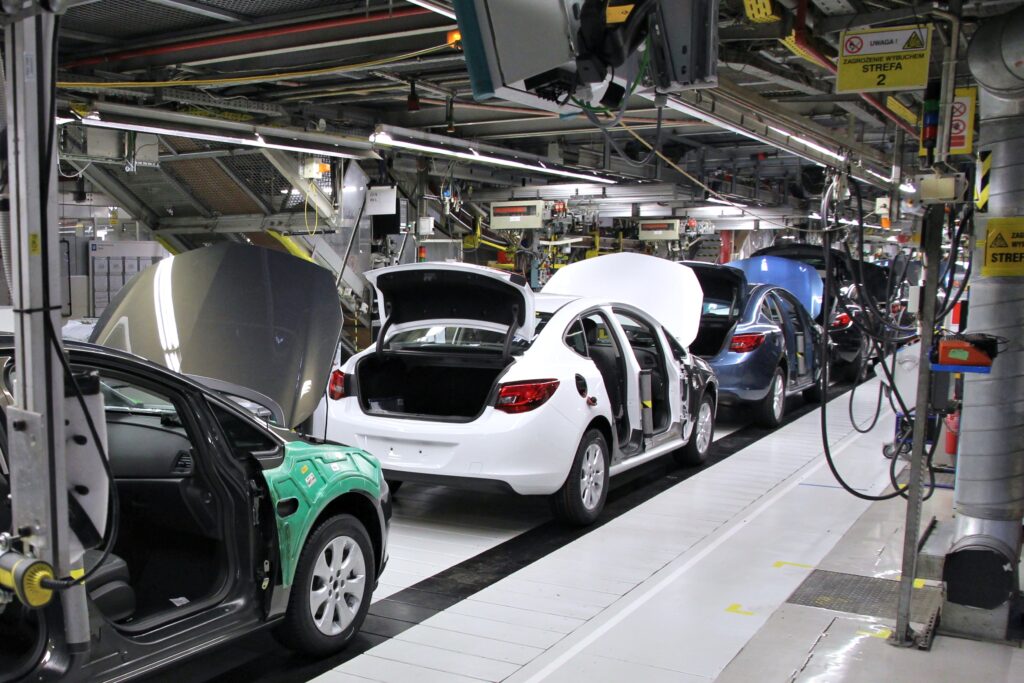It’s no secret that technology has undergone a significant transformation in recent years. One industry that this shift has greatly influenced is automotive. Software development has played a crucial role in revolutionizing the automotive sector, with groundbreaking advancements such as autonomous vehicles and state-of-the-art infotainment systems capturing the attention of the public on a regular basis.
However, it is uncertain what the implications for the future will be. This article will explore how software development for automobiles shapes the transportation industry and what it means for the future.
Role of Software Development in the Automotive Industry
Software development is now used in the vehicle’s internal systems and driver-assist features that enhance the overall driving experience. As the software and automotive industries continue to evolve, there is an increasing demand for software developers to design cars with state-of-the-art technology. In recent times, software development has brought about a significant transformation in how we utilize and engage with automobiles.
Software development has revolutionized the automotive industry by enabling advancements such as improved navigation systems, automatic climate control, obstacle detection, and accident prevention. These developments have made almost anything possible in the automotive world.
How is Software Development Changing The Automotive Industry?
Automotive software has made significant advancements that are revolutionizing the way automobiles are manufactured and designed. CAD software has made the process of engineering vehicle parts incredibly convenient. It offers the ability to create 3D models quickly and accurately, as well as conduct virtual testing before moving on to actual production. Consequently, traditional methods of prototyping and testing have become significantly more efficient and cost-effective.
In addition, the manufacturing process is incorporating software development to help minimize waste and improve efficiency. In recent times, there has been a noticeable increase in the presence of robots that are capable of assembly and welding tasks in production line automation. This development has proven to be beneficial as it enhances precision and allows human workers to focus on more advanced tasks.
Benefits of Software Development for the Automotive Industry
Software development enables advancements in safety measures and enhances precision and accuracy in manufacturing processes. Nowadays, cars can incorporate various advanced driver assistance features, including sensors, warning systems, and other cutting-edge technologies. Not only does this provide drivers with more control and confidence in their driving skills, but it also decreases accidents by warning them about potential road hazards ahead of time. Using automotive software can be a great way for vehicle owners to contribute to the environment and also save some money. By leveraging this technology, they can enhance the efficiency of their vehicles and reduce fuel consumption.
Software development plays a crucial role in enhancing the capabilities of connected vehicles. By leveraging high-speed networks, these vehicles can offer a wide range of connected services, including real-time traffic updates and entertainment options. Moreover, software development contributes to enhancing safety and efficiency in these vehicles. Enhanced connectivity among vehicles on the roads and the added convenience for drivers ultimately contribute to making our roads safer.
Future of Automotive Technology With Software Development
The future of software technology in the automotive industry has the potential to be greatly enhanced through the integration of software engineering with other state-of-the-art technologies. With the integration of software development into every aspect of the automotive process, automakers can now create more advanced, safer, and more intelligent vehicles than ever before.
This means that software plays a crucial role in enabling automakers to build vehicles with enhanced features and capabilities from the initial design phase to production and even maintenance. With advancements in AI, ML, and predictive analytics, developers can now create software for automobiles that is more user-friendly and can automate various aspects of the driving experience.
Conclusion
In recent years, the significance of software engineers in the car industry has experienced a remarkable surge. Automakers increasingly recognize the growing significance of software and engineering solutions in vehicle design, production, and maintenance. With the progress made in software development, we can now create automobiles that are not only smarter but also safer and more fuel-efficient.
Software development is significantly influencing the car industry as a whole. This impact brings both exciting opportunities for innovation and new challenges for developers and manufacturers to overcome. To ensure a secure ride in the future of mobility, automobile manufacturers can incorporate the latest features by blending conventional approaches with cutting-edge technologies such as cybersecurity protocols, artificial intelligence, and machine learning.


